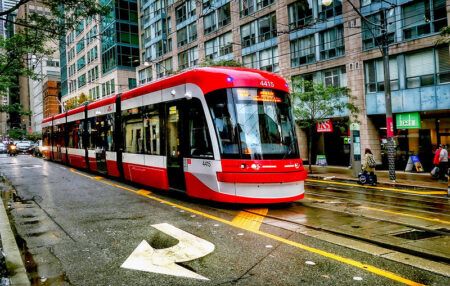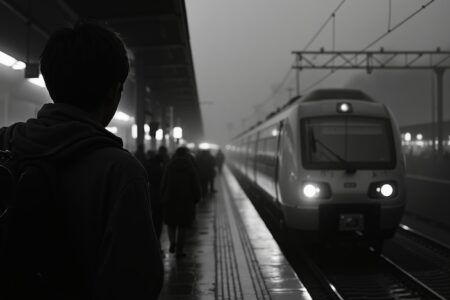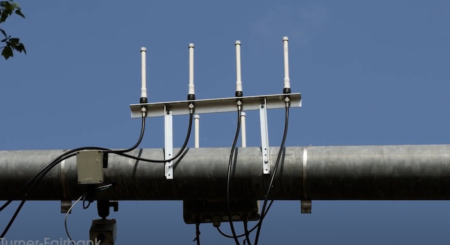US Secretary of Transportation Pete Buttigieg headlined a ceremonial groundbreaking to mark the start of the construction of a new bus rapid transit (BRT) service in Las Vegas on Tuesday August 13, 2024.
Hosted by the Regional Transportation Commission of Southern Nevada (RTC) the ceremony to took place at Boulevard Mall, about two miles from The Strip.
Secretary Buttigieg was joined by RTC leadership and members of Nevada’s federal delegation to mark the beginning of construction of the $378 million Maryland Parkway Bus Rapid Transit project that will improve safety and enhance functionality along a 12.5-mile stretch of one of the most important corridors in Southern Nevada.
“Thanks to President Biden, Vice President Harris, and this Congressional delegation, we passed historic infrastructure funding that includes the biggest investment in public transit in US history,” said Buttigieg. “We’re using that funding package to improve roads in Las Vegas, we’ve started work on America’s first high-speed rail line between Las Vegas and Southern California, and today we begin construction on a new rapid bus route that will give residents a faster, more reliable, more comfortable trip between the airport, UNLV, downtown Las Vegas, and the Medical District.”
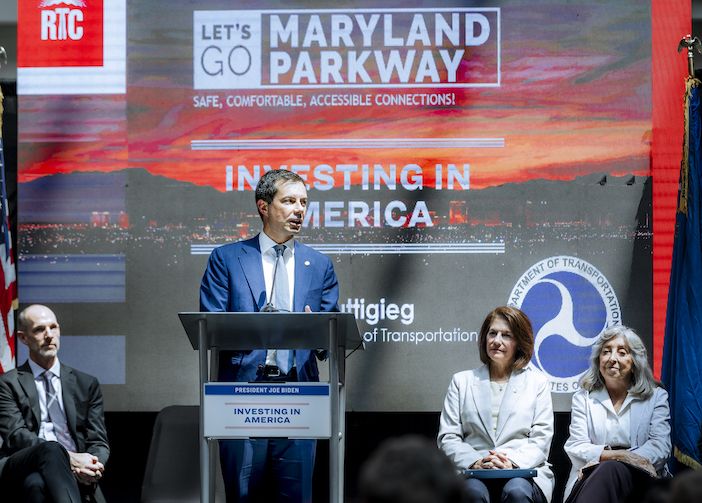
Funded in part by a nearly $150 million federal grant from the Federal Transportation Administration, the Maryland Parkway Bus Rapid Transit project spans from the South Strip Transit Terminal, 6675 Gillespie St., to the Las Vegas Medical District near downtown Las Vegas. The project will expand transit service, enhance up to 50 transit shelters, develop seven miles of dedicated shared bus-bike lanes, widen sidewalks, signalize pedestrian crossings, install advanced traffic signal timing, improve lighting and landscaping, and employ hydrogen fuel cell electric buses. These efforts will ultimately enhance safety and functionality for all users, including motorists, pedestrians, cyclists, and transit riders.
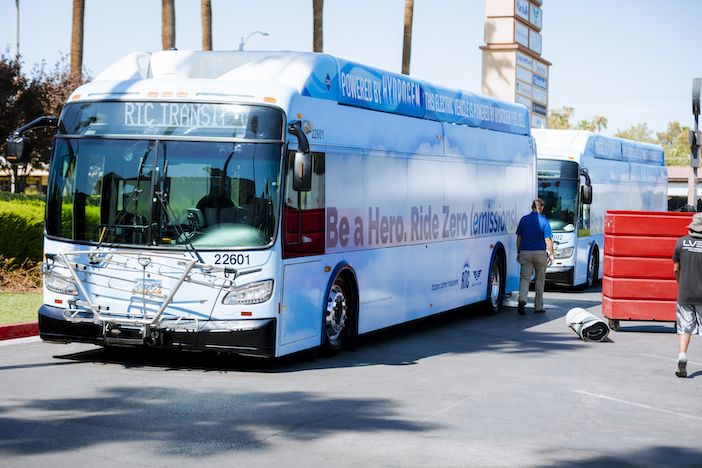
Via significant aesthetic enhancements, the project will create a greater sense of identity for Maryland Parkway, helping to expand redevelopment opportunities and attract future investment in the area. Today, Maryland Parkway is home to 63,000 residents, more than 109,000 jobs, and carries approximately 35,000 vehicles and 9,000 transit riders daily, making it one of the most productive routes in the system, carrying more people per bus per hour than even the Las Vegas Strip.
“The benefits of the project are vast,” says RTC CEO MJ Maynard. “We are implementing a ‘complete streets’ design to enable safe use and support mobility for all users, whether they choose to walk, bike, drive or take transit. We are enhancing Maryland Parkway for everyone who lives, works and travels within the corridor.”
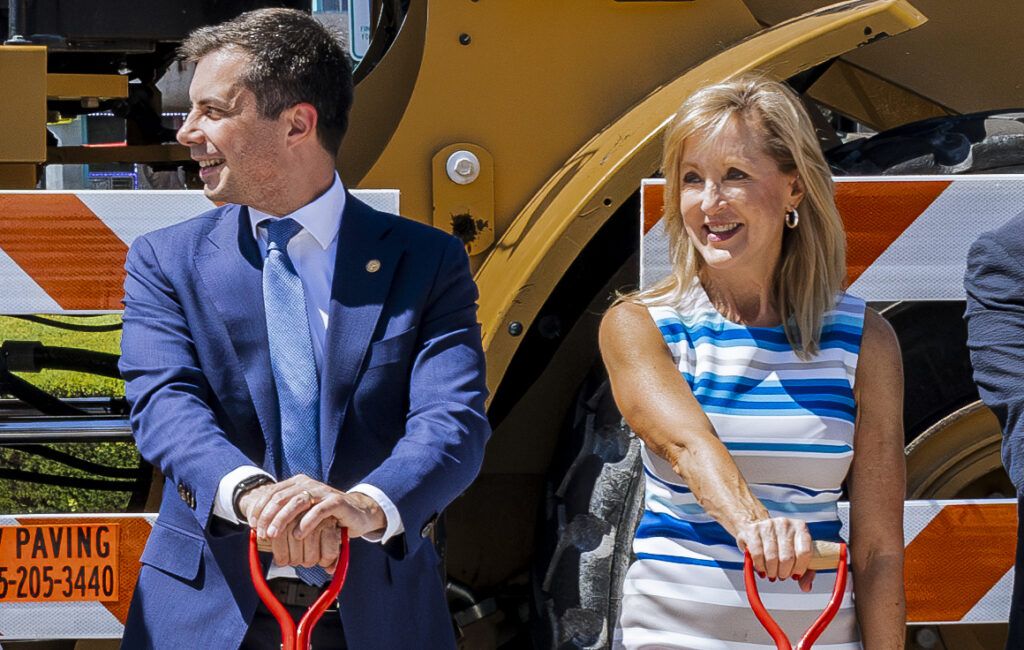
“The significance of Maryland Parkway to Southern Nevada cannot be overstated,” says Clark County commissioner and RTC board chairman Justin Jones. “As a high-volume corridor and home to landmark facilities, including Harry Reid International Airport; the University of Nevada, Las Vegas; the Boulevard Mall; Sunrise Hospital; the Las Vegas Medical District; and hundreds of small businesses, it connects residents to jobs, medical services, education, shopping, neighborhood services and more.”
Expanded transit service will reduce wait times for transit riders; the use of 15 hydrogen fuel cell electric buses along Maryland Parkway will provide quieter rides and reduce pollution; 42 new and enhanced transit shelters will provide more shade, increasing comfort for waiting transit riders; wider sidewalks separated from car lanes will improve safety for pedestrians and access for mobility devices; shared bus-bike lanes will provide a larger space for cyclists while simultaneously improving traffic flow; and improved signal timing and additional turn lanes will enhance traffic capacity and flow.
The project is expected to create 1,100 new jobs and engage 18 local and small businesses valuing $33 million in contracts. Construction will be completed in phases and began earlier this month in three different parts of the corridor, north of Sahara Avenue. Completion of the entire project is anticipated by year end 2026. For more information and to sign up for construction updates and real-time traffic alerts, visit MarylandParkway.com.
Watch out for an interview with MJ Maynard in a forthcoming episode of the Transportation Podcast


